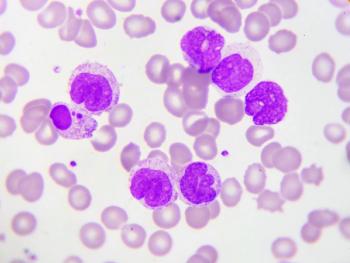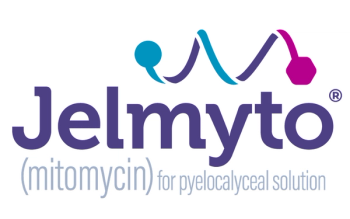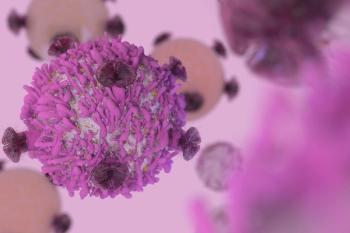
Researchers also noted the importance of patient-reported outcomes due to the fluctuating and unpredictable nature of generalized myasthenia gravis and the subjectivity of symptoms.

Researchers also noted the importance of patient-reported outcomes due to the fluctuating and unpredictable nature of generalized myasthenia gravis and the subjectivity of symptoms.

Analysis also indicates that individuals with the highest-level beta-cryptoxanthin in their blood were less likely to develop cognitive issues decades later.

The recommendations apply to individuals who are already taking the maximum dose of statins.

After 14 months without ART, a patient with HIV only had transient detection of trace levels of HIV DNA in her blood cells after a stem cell transplant for acute myeloid leukemia.

Sara Wettergreen, assistant professor in the department of Clinical Pharmacy and Department of Family Medicine at Skaggs School of Pharmacy and Pharmaceutical Sciences, discusses burnout and mental health concerns among pharmacy technicians.

Adenovirus has been noted in some patients throughout Europe, but not among all of them so investigators are considering other potential causes and contributing factors in the hepatitis outbreak.

Students are being exposed to new patient experiences through collaboration with practitioners.

Baricitinib (Olumiant) approved for the treatment of adult patients hospitalized with COVID-19 who require supplemental oxygen, non-invasive or invasive mechanical ventilation, or extracorporeal membrane oxygenation.

Joel Wayment, vice president of operations for 3PL Services at Cardinal Health, discusses how the pharmaceutical supply chain currently manages the transport of CAR T products to sites of administration.

Medications are the primary cause of acquired QT-prolongation, although the exact mechanism of why some people evoke torsades de pointes but others do not is still unknown.

Ray Tancredi, divisional vice president of Specialty Pharmacy, Development & Brand Rx/Vaccine Purchasing at Walgreens, discusses blockbuster drugs in the oncology space that have been approved this year or may be hitting the market soon.

Tracy Russell, senior director, State Government Affairs at CoverMyMeds, discusses state and federal legislation that may be impacting the future of specialty pharmacies and the patient care they deliver.

Metronidazole is commonly used to treat Clostridium difficile infection, however, it has higher rates of therapy failure.

Students in the ISU/UAA pharmacy program discuss the impact of Alaska’s first pharmacy program and what it means to learn about and work in rural communities.

Imposter syndrome is a phenomenon that affects self-confidence, significantly limiting the effectiveness of professionals affected by it.

Analysis shows that half of individuals with both these sensory losses are cognitively impaired, investigators say.

Results from the DELIVER and DAPA-HF phase 3 trials demonstrate AstraZeneca’s Farxiga’s efficacy in heart failure, regardless of ejection fraction.

An international phase 1/2 clinical trial is ongoing for the treatment for individuals with relapsed or refectory acute myeloid leukemia with FLT3 mutation.

First phase 3 trial in this setting shows improved overall survival rates with an immunotherapy added to chemotherapy over the standard-of-care chemotherapy alone, company says.

Individuals who are not vaccinated with pre-existing diabetes, heart artery disease, or high blood pressure had a 2- to 3-fold increased risk of death, investigators say.

In 2019, an article in the Journal of the American College of Clinical Pharmacy encouraged pharmacists to engage professionally on social media, despite their having mostly avoided it for such purposes.

Jelmyto is an alkylating drug indicated for the treatment of adult patients with low-grade upper tract urothelial cancer.

Individuals with college debt have a higher risk of cardiovascular illness, undermining the typical benefits of a post-secondary education, data indicate.

Mavacamten is a first-in-class selective allosteric modulator of beta cardiac myosin ATPase for the treatment of symptomatic obstructive hypertrophic cardiomyopathy.

Statistics indicate possible benefit of home-based palliative care interventions, according to study results from the Indiana University School of Medicine and the Regenstrief Institute.

Findings show that key factors include age, infecting variant, underlying illnesses, and vaccination status.

Palbociclib is indicated for adults in combination with an aromatase inhibitor as initial endocrine-based therapy in postmenopausal women or in men.

The drug combination achieved a median overall survival of more than 5 1/2 years in the first-line setting for postmenopausal women with HR+/HER2- aBC1, the company says.

Owning your time and scheduling self check-ins can help students avoid burnout.

FDA action was based on an analysis for the risk of thrombosis with thrombocytopenia syndrome, a rare and potentially life-threatening condition that causes blood clots combined with low levels of blood platelets.